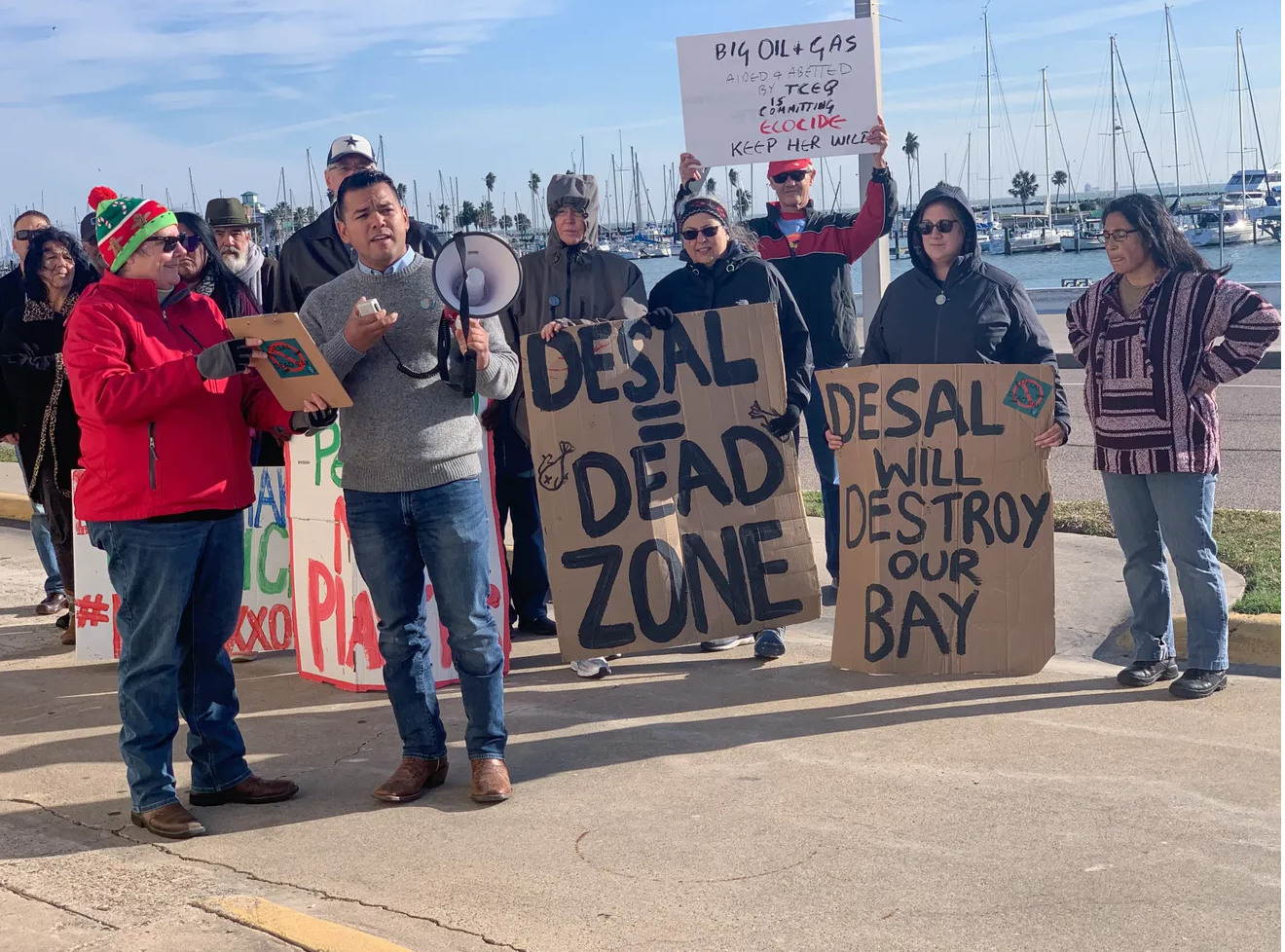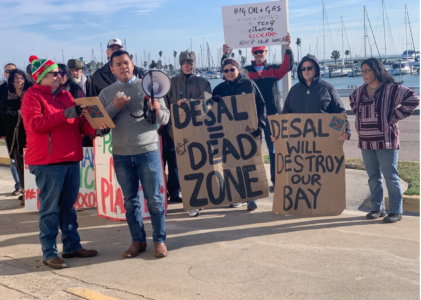Written by Brittany Garcia
The Harbor City is renowned as a top fishing destination, home of the largest shrimp festival in Texas, and as an all-around wonderful city to visit or call home. The laid-back atmosphere and shimmering waves kissing the shoreline make you never want to leave. But the very things that define Aransas Pass are under attack.
There is a race taking place in the Coastal Bend in the form of unchecked industrial expansion that threatens our environment, wildlife, and diverse economy. Fossil fuel and petrochemical industries are popping up left and right, and with them come demands for unimaginable amounts of water to fuel their operations. According to their own website, the Exxon-Saudi plant under construction near Portland will need 18 million gallons of fresh water every day. That’s 6.57 billion gallons a year—and that’s just one plant! Where is that water going to come from?
Industries are pushing for desalination to provide them with a seemingly endless water supply. Desalination is an energy-intensive process that purifies saltwater to produce fresh water. There are seven seawater desalination plants proposed in the Coastal Bend right now including two by the Port of Corpus Christi, two by the City of Corpus Christi, and one by the City of Ingleside. The costs of even one plant—both financially and environmentally—are frightening.
For every gallon of useable water desalination plants produce, they discharge two gallons of brine: a concentrated cocktail of salt, metals, and other chemicals. According to permits filed with the state environmental agency, the maximum daily brine discharge from all seven plants would be over 671 million gallons! This brine has to go somewhere, and these plants are proposing it be dumped right into Corpus Christi Bay. Due to the low rate of exchange with the Gulf of Mexico, brine discharge would not dilute properly. It would sink to the bottom of the bay, destroying prime spawning grounds for shrimp, crabs, and fish. According to a report by the Environmental Protection Agency, desalination waste kills at least 3.4 billion fish and other marine life annually. Additionally, desalination causes fishermen to lose at least 165 million pounds of fish a year and 717.1 million pounds of potential future catch. Texas Parks and Wildlife expressed serious concerns with the Port’s proposed LaQuinta Channel desal plant due to the impact on Black Drum populations and water quality for all species in the channel. How did the Port respond? They amended their original project: the updated application triples the original project’s size and discharge.
What’s more, the Port of Corpus Christi has stated in their Harbor Island desal plant application that they do not intend to operate the plant themselves. The implication is that they are preparing these facilities for yet-to-be-named industrial partners to ensure their astronomical demand for water is met. This is a key element in the Port’s plot to industrialize approximately 3,000 acres not far from Lowe’s, which could feasibly include refineries.
Aside from the unmitigated environmental impacts, desalination is extremely expensive. In December 2019, the City of Corpus Christi authorized $450,000 to be spent on permits. They also contracted Freese and Nichols (a consulting firm) to do preliminary work for $2.4 million and requested a $222.5 million low-interest loan from the Texas Water Development Board. These amounts don’t begin to cover the full costs of construction, operation, and maintenance. The industries pushing for these plants can afford to pay for their own water and take it as an expense on their taxes. Residential users cannot. Many communities funding desalination plants see their water and light bills increase. I don’t know about you, but I’m not interested in footing the bill for industries’ insatiable thirst.
Thankfully, concerned community members are actively organizing to oppose the plants and the industrial expansion they would support. The Coastal Alliance to Protect the Environment (CAPE) is working to inform elected officials and residents of the environmental and financial costs of desal and the industrial buildout they would support. Port Aransas Conservancy along with the City of Port Aransas and others won the right to a trial on the permit for the Harbor Island desal project. For the Greater Good, a grassroots group in Corpus Christi, is leading a charter amendment campaign to remove the City of Corpus Christi as a viable funder of desal projects. It’s certainly a David versus Goliath battle, but so many of us have joined the fight to save our home. My question for you is: Will you join us?
—
Brittany Garcia is the Coastal Bend Lead Organizer with Texas Campaign for the Environment, a Sociologist with a Bachelors degree from Texas A&M University—Corpus Christi, and a member of For the Greater Good.

